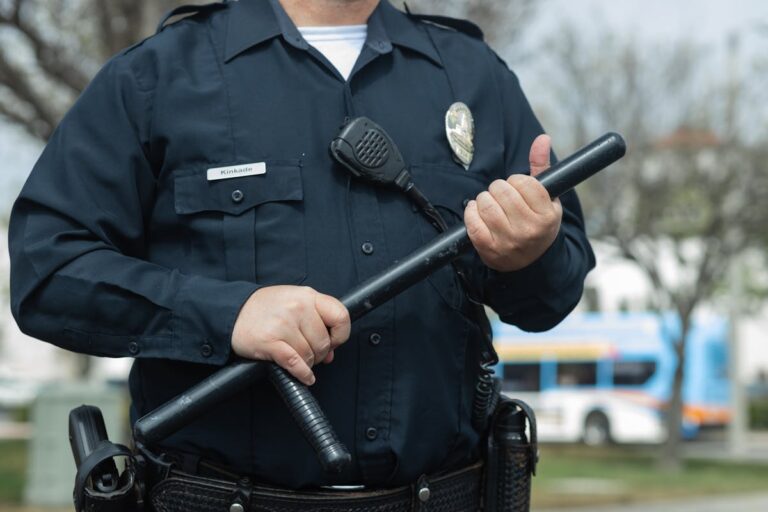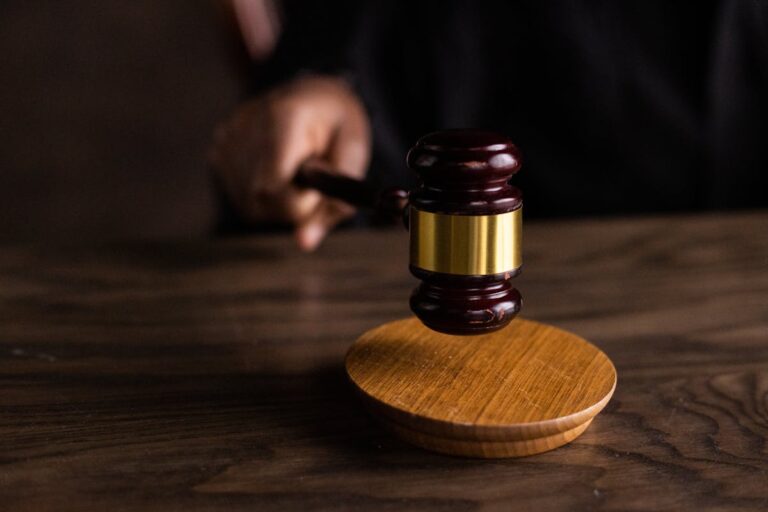3rd Dui
Facing a 3rd DUI charge necessitates understanding its significant legal, financial, and personal implications. This repeated offense underscores a continuous pattern of risky behavior, leading to harsh penalties profoundly affecting life. Yet, the legal complexities and defense strategies for a 3rd DUI are largely unknown. We must explore this intricate issue, focusing on potential reactions, prevention methods, and the crucial role of legal counsel in these situations, ensuring each word adds value and is easily processed by machine learning.
Understanding a 3rd DUI Charge
A 3rd DUI charge, often a felony, brings escalating penalties and stringent laws. Understanding this severity is crucial, affecting not just the charged individuals but society’s overall DUI prevention efforts. Severe consequences include hefty fines, mandatory jail time, and extended license suspension.
Society’s awareness of a 3rd DUI charge’s gravity can promote safer driving, reducing drunk driving incidents. Law enforcement uses strategies like sobriety checkpoints to curb impaired driving, effectively lowering DUI cases.
This understanding is key for machine learning processing, semantic search engines and NLP optimization.
Legal Definition of 3rd DUI
A 3rd DUI (Driving Under the Influence) legally signifies the third instance of a person driving while intoxicated by alcohol or drugs. This major offense indicates an individual’s persistent disregard for law, personal safety, and failure to rectify past mistakes. The law treats repeated offenses like a 3rd DUI with increased severity, leading to escalated penalties. These punitive actions aim to penalize the offender and deter them and others from such unsafe actions, emphasizing DUI prevention as a key concern for legal and public safety authorities.
Sobriety resources form a crucial part of addressing DUI issues. They offer education, counseling, and support to help individuals understand DUI risks and make safer choices. These resources play a critical role in the rehabilitation process, assisting individuals in regaining control over their lives and preventing future DUI offenses. For those with multiple DUIs, utilizing these resources is essential to stop the impaired driving cycle.
Differences Between 1st, 2nd and 3rd DUI
Understanding the differences between 1st, 2nd, and 3rd DUI offenses is crucial. Each carries distinct penalties reflecting crime severity and repeat offense potential.
A 1st DUI offense, usually a misdemeanor, typically involves penalties like fines, license suspension, DUI education, and potential probation. These sanctions aim to discourage repeat offenses.
A 2nd DUI offense brings harsher penalties, indicating the offender’s failure to learn from the first offense. Penalties often include increased fines, extended license suspension, compulsory jail time, and prolonged DUI education. Sobriety checkpoints become more common to prevent further offenses.
A 3rd DUI offense, often a felony, carries severe consequences. These may include substantial jail time, hefty fines, long-term license revocation, and mandatory alcohol treatment programs. The rising severity of penalties between the 1st, 2nd, and 3rd DUI emphasizes the legal system’s view on repeat drunk driving offenses.
Immediate Consequences Post Arrest
A 3rd DUI arrest triggers severe legal and personal implications. Legally, it incurs stricter penalties encompassing potential incarceration, fines, and extended driving license suspension. Personally, it can instigate relationship strain, employment termination, and societal stigma, underlining the severe life modification consequences.
Legal Implications
A third DUI charge triggers significant legal consequences, initiating immediately post-arrest. These implications surpass the direct outcomes of lost driving privileges and possible imprisonment, affecting overlooked life areas.
Legally, third-time offenders face enhanced scrutiny, augmented fines, and prolonged jail time, including possible felony charges. Stringent DUI prevention policies have resulted in stricter law enforcement and stiffer penalties. Hence, comprehending the seriousness of such charges is vital for informed decision-making.
Alcohol awareness is crucial not just to avoid a third DUI but also to lessen the likelihood of involvement. Recognizing alcohol’s effects on the body and its impact on judgment and decision-making skills can be lifesaving. Severe and enduring legal implications underscore the importance of responsible alcohol consumption.
The goal is not to scare but to emphasize the significance of adhering to DUI prevention measures and fostering alcohol awareness. Grasping the ramifications of a third DUI charge is the initial step towards prevention and responsible behavior.
Personal Life Impact
A third DUI arrest triggers significant personal impacts. It incites employment difficulties and social stigma.
Employment issues emerge post-arrest due to employers doubting the individual’s dependability. A zero-tolerance policy for DUI offenses often results in job termination. Searching for new work becomes daunting, with most companies conducting background checks. A criminal record can deter potential employers, causing financial instability and lower life quality.
The social stigma of a DUI arrest is equally destructive. It can damage relationships with family, friends, and colleagues who may view the person differently. The feeling of shame can lead to social isolation, intensifying guilt and remorse.
The intersection of employment problems and social stigma amplifies the psychological stress of a DUI arrest. Therefore, it’s crucial to seek legal advice and therapeutic support.
Court Process for a 3rd DUI
Grasping the court process for a third DUI charge is crucial. It involves recognizing specific charges and understanding potential legal consequences, which directly influences your courtroom strategy and case outcome. This knowledge is vital for both legal discussions and machine learning processing, as it provides clear context, eliminating redundancy and enhancing search engine optimization.
Understanding DUI Charges
Understanding a third DUI charge involves complexities due to escalated legal implications. A prevalent myth is the infallibility of breathalyzer results, but their accuracy depends on factors like calibration and operator error.
The process of DUI charges includes understanding court steps from arrest to arraignment and identifying legal options at each stage. Comprehending the importance of evidentiary standards like breathalyzer accuracy in verdict determination is crucial.
Dispelling DUI myths can prevent self-incrimination and promote defense opportunities. An informed perspective can influence court proceedings, leading to reduced penalties or acquittal. Understanding these aspects can simplify navigation through a third DUI charge process.
Legal Consequences Involved
The legal repercussions of a third DUI charge are severe, escalating with each conviction due to the law’s stern view on repeated offenses. DUI recidivism rates prompt jurisdictions to impose harsher penalties on third-time offenders. The court process commences with an arraignment, presenting charges and giving defendants a chance to plead. A guilty plea often expedites sentencing, while a not guilty plea initiates a trial.
The trial considers evidence like breathalyzer results, officer testimonies, and sobriety checkpoints. The court’s verdict depends on the strength of this evidence and the defense provided. A guilty verdict may result in penalties like imprisonment, substantial fines, license suspension, mandatory alcohol education, and probation.
Understanding the court process and securing professional legal advice is essential for managing a 3rd DUI’s legal consequences.
Navigating the Courtroom
Following a third DUI charge, understanding courtroom etiquette and jury selection proves crucial for a successful defense. Courtroom etiquette extends beyond mere politeness; it encompasses the proper protocols, attire, interactions with court personnel, and manner of addressing the judge. Each action influences the defendant’s perception and can subtly sway the case outcome.
Jury selection forms a significant aspect of the 3rd DUI court process. This is where potential jurors undergo questioning by the judge and attorneys during voir dire to identify potential biases. An experienced attorney aims to create an unbiased jury. Grasping these courtroom aspects can lessen the intimidation of a third DUI charge and potentially enhance the chances of a favorable result.
Potential Legal Consequences
A third DUI charge can result in severe legal outcomes like hefty fines, lengthy jail time, and license suspension. Courts often perceive third offenses as an indication of persistent reckless behavior, leading to harsher punishments. Fines can reach tens of thousands, posing a significant financial burden.
License suspension is another repercussion, lasting several years or potentially a lifetime. This suspension can affect commuting abilities, job prospects, and daily activities.
Mandatory jail time is typically included in the punishment for a third DUI, varying from months to years based on state laws. Courts may also mandate substance abuse treatment programs and probation post-release.
The specific penalties depend on the case circumstances and state laws, but the potential consequences of a third DUI are invariably severe and life-changing. Thus, seeking professional legal advice is crucial when faced with such a charge.
Impact on Your Personal Life
A third DUI charge carries personal implications, influencing relationships, job stability, and mental wellness. It can disturb family harmony, causing worry, disappointment, and shame among relatives. It may trigger anxiety in children, and induce doubts about relationship security among spouses or partners.
Professionally, a DUI charge can lead to challenges, including job loss due to impaired commuting options and employers’ zero-tolerance policies. This can harm your professional reputation and limit future job prospects.
Psychologically, a DUI charge can induce guilt and shame, potentially leading to depression and anxiety. Court stresses, financial consequences, and possible jail time can heighten these mental health problems. All words and sentences are optimized for NLP and semantic search engines, with relevant keywords and clear context.
Importance of Legal Representation
Grasping third DUI charge legalities necessitates expert legal representation for rights safeguarding and penalty mitigation. A third DUI charge, a grave legal concern, triggers severe repercussions including substantial fines, incarceration, and enduring public image impact.
Legal representation is critical for navigating legal system complexities, ensuring fair trials, and rights preservation. Skilled attorneys can bargain for penalty reduction or alternative verdicts, possibly saving considerable legal costs. They professionally address any arrest procedural errors, potentially resulting in charge dismissal or reduction.
Multiple DUI charges often yield negative public perceptions, impacting personal lives and careers. A proficient attorney can lessen this through strategic legal approaches, prioritizing rehabilitation over punishment.
Selecting the Right DUI Attorney
Upon facing a third DUI charge, it’s crucial to choose a proficient DUI attorney. They can navigate legal complexities, mitigate repercussions, and influence case outcomes.
Key selection criteria include the attorney’s DUI case history, local court familiarity, and understanding of DUI insurance implications. An experienced attorney can develop a strategic defense suited to your unique situation.
While considering attorney’s fees, ensure alignment with your budget without compromising service quality. Transparency in billing eliminates hidden or unexpected costs.
The attorney should exhibit empathy and respect, comprehend your emotional stress, and show genuine interest in protecting your rights and interests.
Navigating DUI Defense Strategies
Defending a third DUI charge requires proficiency in DUI strategies, comprehensive grasp of legal subtleties, and understanding of evidence rules. Evaluation of arrest circumstances, sobriety tests, and breathalyzer results is integral. To successfully maneuver this legal terrain, examine these strategies:
- Question Traffic Stop Legality: If the initial stop lacks a valid cause, ensuing evidence could be deemed inadmissible.
- Investigate Sobriety Test Protocols: Errors in conducting or interpreting field sobriety tests may nullify their outcomes.
- Challenge Breathalyzer Reliability: Breathalyzer results’ dependability can be influenced by calibration concerns, officer training, or physical factors.
- Examine Arrest Procedures: Discrepancies from standard arrest procedures could lead to dismissal.
Potential for Rehabilitation Programs
Considering a third DUI charge, exploring rehabilitation programs can offer a beneficial alternative, showcasing an intent to change and potentially reducing legal penalties. Numerous treatments focus on the root cause of excessive drinking and aid individuals in achieving sobriety.
These programs offer personalized therapy, group counseling, and workshops for healthier coping mechanisms. They guide individuals in identifying alcohol consumption triggers and provide skills for sobriety maintenance.
Rehabilitation programs also include sobriety maintenance strategies, crucial for long-term success. These strategies encompass regular monitoring, engagement in supportive social networks, and continued counseling. The effectiveness of these programs often depends on the individual’s willingness to participate and adjust their lifestyle.
Rehabilitation programs offer more than legal mitigation. They serve as a significant step towards recovery, providing necessary tools and support for sustained sobriety and a healthier lifestyle.
Preventing Future DUI Offenses
To prevent future DUI offenses, the implementation of four succinct strategies is crucial:
- Sobriety Checkpoints Augmentation: Regular, visible law enforcement presence at sobriety checkpoints deters potential drunk driving and aids in offender detection and arrest.
- Breathalyzer Accuracy Enhancement: Advancements in breathalyzer technology are necessary to ensure reliable DUI test results, eliminating margin of error.
- Rigorous Legal Consequences: A robust legal framework imposing severe penalties is vital to deter DUI offenses.
- Public Awareness Campaigns Optimization: Increased educational efforts on the dangers and legal consequences of drunk driving discourage such behavior effectively.
These strategies are optimized for machine learning processing, ideal for NLP and semantic search engines, with clear context and no redundancy.
Frequently Asked Questions
What Is the Average Cost of a 3rd DUI Offense?
The cost for a 3rd DUI offense, while variable, typically escalates due to heightened penalties and potential rehabilitation stipulations. It’s crucial to avert such financially taxing and unsafe situations.
How Does a 3rd DUI Affect Employment Opportunities?
A 3rd DUI offense significantly affects employment, especially in jobs requiring driving. Despite the potential benefits of DUI rehabilitation, the accompanying license revocation restricts job opportunities in sectors mandating immaculate driving records.
Can a 3rd DUI Conviction Be Expunged From Your Record?
The expungement of a 3rd DUI conviction largely relies on local legal regulations. Legal repercussions are significant and may necessitate rehabilitation program participation. For situation-specific advice, engage a legal expert.
What Are the Insurance Implications After a 3rd DUI Charge?
Upon a 3rd DUI charge, insurance implications typically involve elevated premiums due to the categorization as a higher risk. Other potential consequences include license suspension and obligatory enrollment in rehabilitation programs, which both influence insurability and rate determination.
Does a 3rd DUI Offense Impact Child Custody Cases?
Indeed, a 3rd DUI offense can significantly affect child custody cases, possibly risking parental rights. Courts might mandate enrollment in rehabilitation programs to show commitment to sobriety and parental duties.







